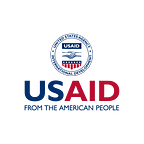2019 Year in Review: Saving Lives in Venezuela
As 2019 comes to a close, we are looking back at ways USAID has helped the people of Venezuela, who have been suffering the impacts of an ongoing political and economic crisis.
Since 2014, Venezuela has been devastated by crisis that has:
- Forced 4.8 million Venezuelans from their homes
- Left 7 million people in Venezuela in need of humanitarian assistance
- Caused 90 percent of hospitals in Venezuela to be without enough water or access to medicine
Working with impartial relief agencies — including international and local organizations and UN agencies — the United States has provided $56 million in humanitarian assistance inside Venezuela to meet urgent life-saving needs, stem the spread of infectious diseases, and help safeguard vulnerable Venezuelans from violence and exploitation.
As we look back on 2019, we are seeing signs that USAID’s support for the Venezuelan people has made a difference. Here are four ways how.
1. Decreased measles deaths by 96 percent
Between May 2018 and May 2019, USAID supported measles vaccination efforts inside Venezuela with a goal of reaching 9 million people. Venezuela’s measles outbreak began in 2017, and by 2018, the country had one of the highest proportions of measles cases in the Americas. There were also 75 measles-related deaths in 2018.
In 2019, USAID and our partners saw big results. Thanks to our vaccination efforts, there was a 96 percent drop in measles deaths from 2018, with only two deaths in Venezuela in 2019. We also saw a sharp decline in the number of confirmed measles cases, from nearly 5,800 in 2018 to less than 550 in 2019.
2. Provided much-needed water and hygiene supplies
In 2019, USAID worked closely with our partners to provide water, sanitation, and hygiene assistance to more than 7,000 people, helping to prevent the spread of disease.
This includes working with USAID partners to distribute critical hygiene items — like toothbrushes, soap, and water containers — to communities who need them. They’re training families on safe water, sanitation, and hygiene practices — including at schools, where nearly 1,200 children and young people received hand-washing tips and other skills to stay healthy.
In addition to these critically important supplies and training, USAID is supporting basic repairs and renovations to water, sanitation, and hygiene infrastructure, particularly at schools. This includes the installation of water tanks that provide community members with a reliable source of safe drinking water. USAID is also supporting Venezuelan hospitals, where we are training staff, volunteers, and patients on good hygiene and sanitation practices, as well as providing patients with much-needed hygiene kits.
3. Provided lifesaving health supplies
This year, USAID prioritized the provision of medical supplies to hospitals and health clinics in Venezuela that lacked the critical items needed to treat the sick and wounded. Working with a USAID partner, we delivered enough medical supplies to help 160,000 people for 90 days, including bandages, disposable latex gloves, syringes, and surgical instruments. In addition to distributing these supplies, our partner trained staff at these health facilities on good administrative procedures and finance practices.
4. Served more than a million hot meals
USAID partners served more than 1.4 million meals to vulnerable Venezuelans across 94 community kitchens and schools in Fiscal Year 2019. This food assistance reached an estimated 10,500 children and vulnerable families in Venezuela.
In addition to providing food, we are also supporting programs that prevent and treat malnutrition, provide nutrition counseling, train nutrition workers, and provide guidance to new breastfeeding mothers.
As we move into 2020, the United States will continue to work with our partners to save lives and reach the most vulnerable inside Venezuela with urgent humanitarian aid. While we recognize that the only way to truly end this suffering is by addressing the root causes of Venezuela’s instability, we remain committed to providing lifesaving assistance to make the difference in the lives of those affected by this crisis.
